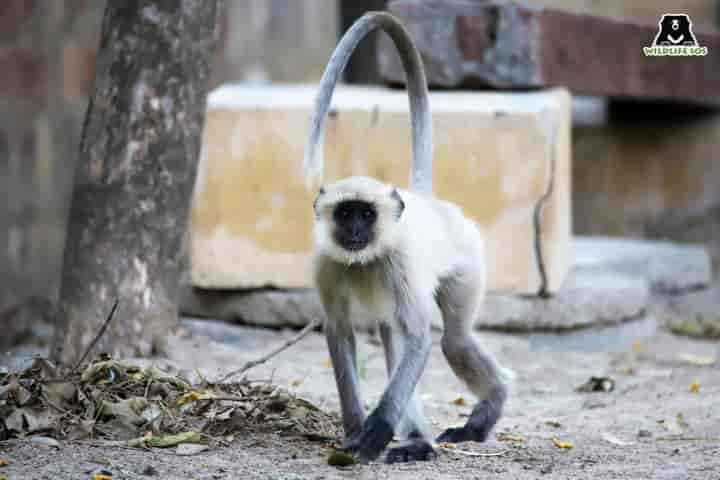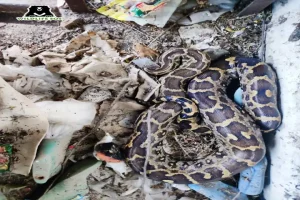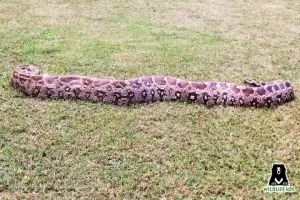In a tragic case reflecting the exploitation of wildlife has come to light with an Indian Gray Langur kept as a pet illegally being rescued by the Uttar Pradesh Forest Department and Wildlife SOS.
The langur was used by its owners to tackle the rising Rhesus monkey problem in Agra’s Swamibagh. Both the primate and her weeks-old baby were illegally kept in harsh conditions with a noose tied around their necks at all times. Due to negligent handling, the baby langur died leaving the mother in a distraught condition. Unable to cope with the loss, the mother fell severely ill and refused to eat.
The Wildlife SOS was informed by a concerned citizen worried about the animal’s wellbeing. Along with the forest department officials the NGO’s Rapid Response Unit reached the spot and rescued the langur. The ailing creature has been moved to the NGO for medical treatment and care.

At present, the langur is under observation and will be released back into her natural habitat once deemed fit.
Preeti, who had informed the NGO told the media: “It is quite common for people to capture Gray Langurs and use them to scare away Rhesus macaques. However, these Langurs are kept in horrible conditions, often left for days without any food or water.”
The NGO’s CEO, Kartick Satyanarayan commenting on this incident said “The myth that Gray Langurs can scare away Rhesus macaques has long been misused by humans to tackle the rising monkey population in urban areas. It is imperative that this myth is debunked and Langurs are given the protection accorded to them under the Wildlife Protection Act.”
The Indian Gray Langur also called Hanuman Langur have a black face and ears and a long tail for balancing on tree limbs. Inhabiting deserts, tropical rainforests and mountain habitats, langurs are found in India, Sri Lanka, Bangladesh and Pakistan. They are protected under Schedule II of the Wildlife (Protection) Act, 1972 and cannot be owned, sold, bought, traded or hired by anyone. Any violation of the law leads to a penalty or a three-year jail term or both.




















